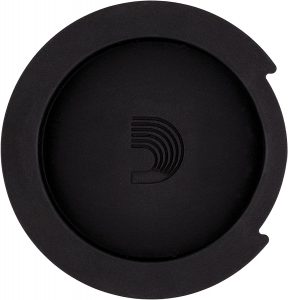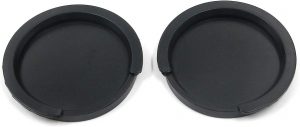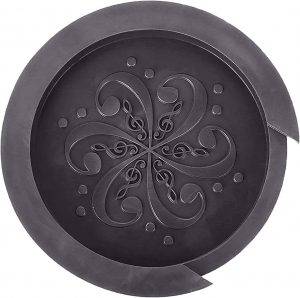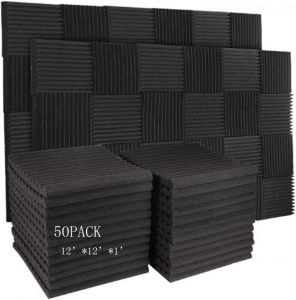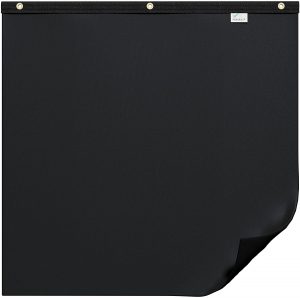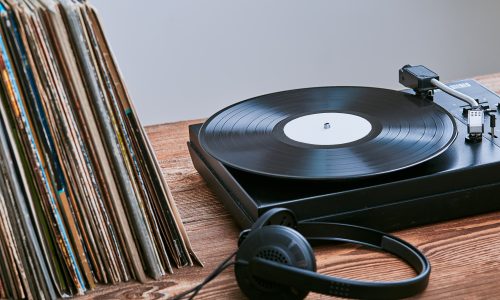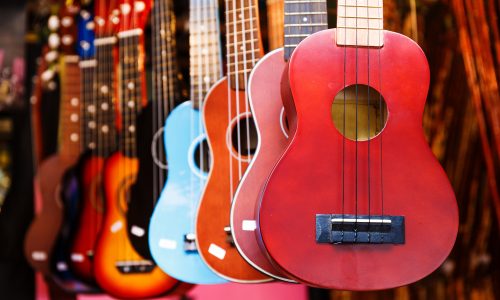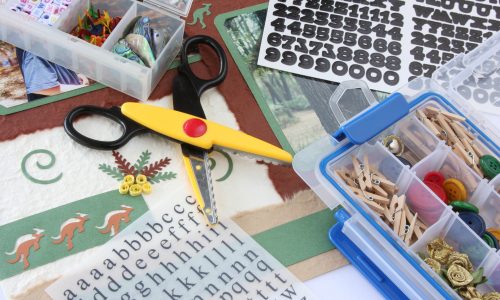The Best Acoustic Sound Cover
We looked at the top 7 Acoustic Sound Covers and dug through the reviews from 8 of the most popular review sites including and more. The result is a ranking of the best Acoustic Sound Covers.

Our Review Process
Don't Waste Your Money is focused on helping you make the best purchasing decision. Our team of experts spends hundreds of hours analyzing, testing, and researching products so you don't have to. Learn more.
Our Picks For The Top Acoustic Sound Covers
- 1. D’Addario Planet Waves Tapered Guitar Soundhole Acoustic Sound Cover
- 2. LokFy Flexible Silicone Guitar Soundhole Acoustic Sound Cover
- 3. Sonic Acoustics Soundproofing Tiles Acoustic Sound Covers, 12-Count
- 4. Geesatis Soft Rubber Guitar Soundhole Acoustic Sound Covers, 2-Count
- 5. IXIGER Rubber Feedback Guitar Soundhole Acoustic Sound Cover
- 6. Burdurry Polyurethane Foam Tiles Acoustic Sound Covers, 50-Count
- 7. Audimute Recycled Materials Dampening Blanket Acoustic Sound Cover
The tapered design and rubber material make this cover one you can use without worrying about damage to your guitar. The cover is easy to install and remove so that it won’t interrupt your performance if you need to use it intermittently. The rubber material creates a tight fit.
Adjustable FitIf you have more than one model of acoustic guitar, this sound cover is a great option, with a tapered design that makes it a nearly universal fit.
High-quality silicone gives this sound cover flexibility, making it work well with a variety of acoustic guitars. The soft material prevents it from scratching your guitar while you’re applying and removing it. The tight seal also helps keep dust from entering the guitar to protect its performance quality over time.
Subtle DesignSubtle ornamentation on the front of this sound cover makes it an attractive addition to any guitar.
This set includes 12 panels measuring 12-by-12 inches each, are designed to be installed on walls to absorb noise. You can choose from a variety of colors and buy multiple sets to get the look and size you need for your space. The panels are flame retardant and odorless, as well as being anti-aging to ensure they last for many years of practices an...
Absorb Sound WavesMuffle the sound in a studio, home or otherwise, with these sound-absorbing panels that can be installed on any wall.
You’ll get two sound hole covers so you’ll always have a spare with this set. The 3.2-inch option fits 38-39-inch acoustic and classical guitars, while the 4-inch option fits in all guitars with a 4-inch sound hole. The covers are rubber to prevent scratching while also being effective in doing their job.
Two-PackCover acoustic sound holes of 3.2 or 4 inches with this set of two covers, which can be used for multiple guitars.
Buying Guide
Sound amplification is paramount when it comes to musical instruments. Acoustic instruments from woodwinds to drums are built in a way that ensures sound carries as far as possible without the use of a microphone. To do this, often holes are built into instruments, with those openings strategically placed for the best natural amplification.
On an acoustic guitar, that hole is found in the body of the instrument, resting beneath the strings. This hole helps achieve something called the resonance frequency, which boosts the sound as you’re playing. Inside the guitar is a large hollow chamber, and the hole vibrates the air inside, amplifying the volume.
But some musicians still use microphones or acoustic guitar pickups to carry the sound even farther, through powered speakers. This is often seen during public performances, where the sound needs to travel to a larger area than if the instrument were just being played at home or in front of a small group of listeners. When amplified, an acoustic guitar’s sound hole can become a problem, creating unpleasant feedback. That’s why you’ll sometimes see musicians cover the sound hole, particularly during louder sections of their music.
That’s where an acoustic sound cover can help. These devices are built to fit in that sound hole, allowing you to play fully amplified without worrying about feedback. Some even come with decorative features that add to your guitar’s unique look. Another side benefit of a sound cover is that it will keep your pick from falling inside. Of course, that likely won’t happen enough to make one worth buying for that reason alone but it’s still a nice bonus.
Some guitar players find they only occasionally need to cover the sound hole. When you need to mute the sound a little or reduce the bass response, a quick temporary coverup can make a big difference. In this case, you won’t need a sound cover. Simply use your hand for that brief section of music, then leave the area uncovered as you continue to the rest of your performance.
Why we recommend these acoustic sound covers?
Products Considered
Products Analyzed
Expert Reviews Included
User Opinions Analyzed
Our experts reviewed the top 7 Acoustic Sound Covers and also dug through the reviews from 8 of the most popular review sites including and more. The result is a ranking of the best of the best Acoustic Sound Covers.
DWYM is your trusted roduct review source. Our team reviews thousands of product reviews from the trusted top experts and combines them into one easy-to-understand score. Learn more.
What to Look For
- Before buying an acoustic sound cover, carefully measure the diameter of your guitar’s sound hole. Size can vary from one guitar to another. Some sound covers have a little flexibility to fit a variety of models, but if you want a solid seal, look for one that’s designed specifically for the size of your guitar’s hole.
- Rubber is a popular material for sound covers for a reason. This material does the job without scratching the body of the guitar. This is especially important if you’ll be installing and removing the sound cover often, rather than leaving it in place for months at a time.
- Sound covers are great at keeping dust and debris from the interior of your guitar. For that reason, it might be worth leaving it on your guitar between uses, particularly if you don’t keep your guitar in a case.
- Some sound covers are solid colored, while others come with subtle decorations that can add a little something to your guitar. Typically, solid-colored sound covers are black, but you can find those in other hues if that’s a little too boring.
- If you have more than one guitar, make sure you purchase sound covers for each of them. You might prefer to have more than one on hand so you’ll never be without a sound cover. You could keep one in your recording studio, for instance, with another in your case to have it when you’re playing gigs.
- A sound cover can be handy for preventing your pick from sliding into your guitar. However, if you don’t have the cover in place at all times, you may still suffer from this inconvenience. If you ever lose your pick inside your guitar, sit down, guitar on your lap, and swiftly turn it over, with a swiftness that mimics flipping an egg in a pan. For best results, avoid moving the guitar around too much once the pick is inside. You’ll want it to stay as close to the sound hole as possible.
More to Explore
Stringed instruments have existed for thousands of years. But the first known use of an acoustic guitar has been credited to an artist named Har-Mose, an Egyptian singer who lived during the reign of Queen Hatshepsut. Har-Mose performed with a three-stringed guitar made from a polished cedar box that is thought to have been the early inspiration for the acoustic guitar.
Har-Mose’s instrument caught on, soon spreading throughout Egypt. It made its way to Europe via the Mesopotamians. This was when guitar lessons were first introduced. A fourth and fifth string were eventually added, with the sixth string coming along in the 1600s.

